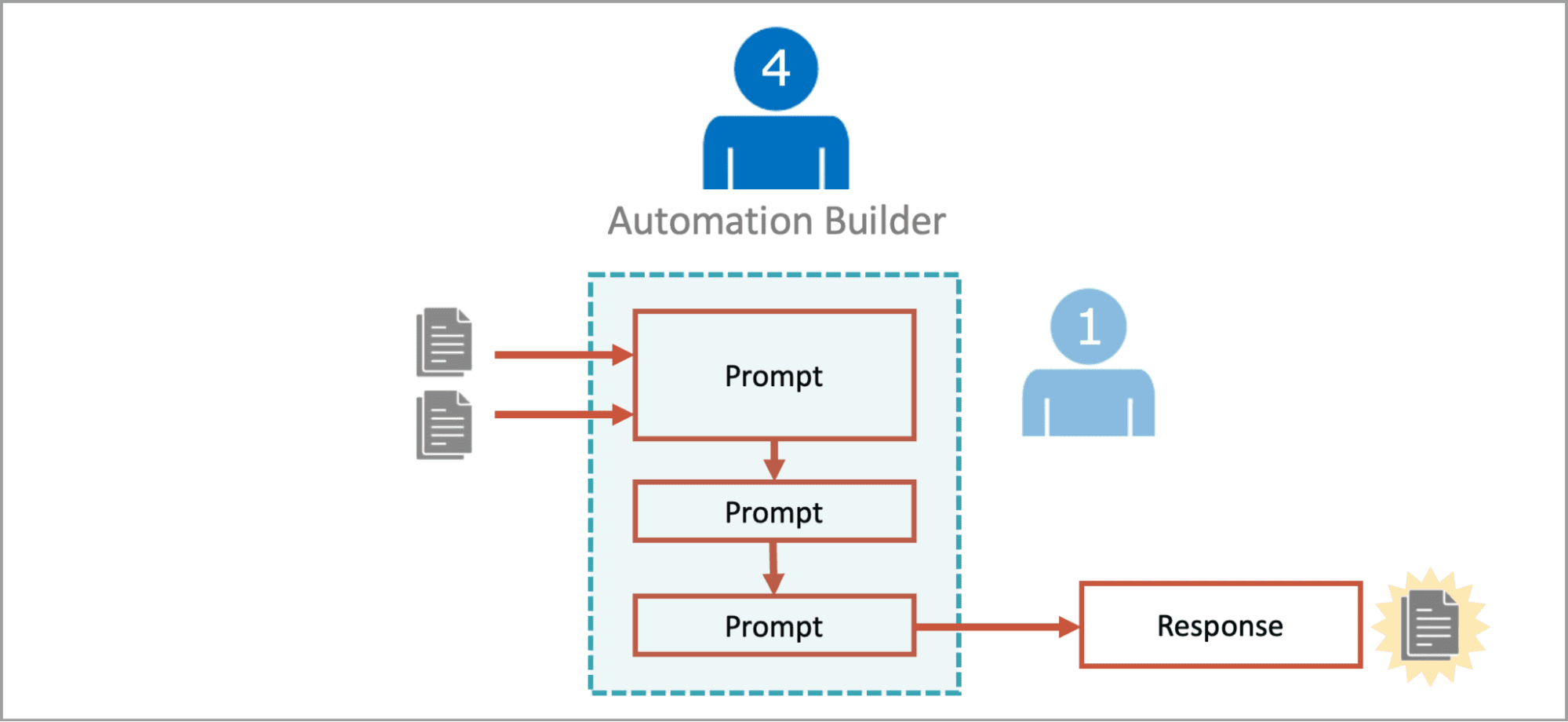employee is in remote limbo, we’re expected to provide treats for better-paid coworkers, and more
It’s four answers to four questions. Here we go… 1. My employee is in remote limbo and it’s impacting her work I have an employee, Jane, who moved two hours from our office during the pandemic. My manager, who has since been let go, told Jane she could work from anywhere. It was a verbal […] The post employee is in remote limbo, we’re expected to provide treats for better-paid coworkers, and more appeared first on Ask a Manager.

It’s four answers to four questions. Here we go…
1. My employee is in remote limbo and it’s impacting her work
I have an employee, Jane, who moved two hours from our office during the pandemic. My manager, who has since been let go, told Jane she could work from anywhere. It was a verbal agreement never formally agreed to with HR.
Since 2022, our company has became stricter about working in the office. In summer of 2023, our HR rep told Jane she had by the end of the year to come into the office four days a week or she would have to “exit” the company. Understandably, she freaked out and had difficulty focusing on her job. Unfortunately, she became ill and had to take a lengthy medical leave. Discussion of exiting the company was put off, and we encouraged her to focus on her health.
Fast forward to the end of 2024, when our team began reporting to a different VP, Bob. He said Jane could continue working from home, but would not seek formal HR approval. She was relieved and putting in a strong effort with her assignments.
At the beginning 2025, company leadership announced they expect 90% compliance with coming in four days a week. Bob’s team of roughly 20 people has been averaging 67% compliance. Jane is distraught again, fearing she will be told to “exit” the company.
She is doing the basics of her job, but in no way reaching her potential. In our weekly touchbases, she complains about high levels of stress and uncertainty. I’m trying to manage her work assignments and brace myself for her negative attitude.
I asked her if she was interested in looking for another job closer to home since she has been visibly impacted over the years. She insists that she likes her work and doesn’t want to leave the company.
She is in a state of limbo and it is impacting her work. As her manager, I feel for her. But at the same time, her 50% effort and complaining is difficult to manage. How should I handle this situation?
You need to have a much more blunt conversation with Jane! Something along these lines: “The reality is, the company is increasingly becoming stricter about requiring people to return to the office. At any time, they could put pressure on Bob to make you return to the office, or he could change his mind on his own. In fact, given the trajectory of the pressure so far, I think that’s likely to occur, potentially without much notice. We’re at the point where I need you to be realistic about that and decide whether you want to move back here or just figure out what you’ll do if that happens. I also want to be up-front that while I fully understand why you’re stressed about this, it’s been showing up in your work (give specifics) and I do need you to get back on track, meaning (specifics).”
Right now you’re being sort of passive about the situation, as if you just need to accept whatever Jane presents you with. But you actually have the standing — and the obligation, really — to be clear with her about what you need to see change.
2. We’re expected to provide treats for better-paid coworkers
I’m a library para (essentially a library assistant) at an elementary school. Next week is Teacher Appreciation Week in our district, and admin has put out a schedule showing each day’s activities: Monday was admin’s day to bring in treats. Tuesday, Wednesday, and Friday are being covered by the PTA. And Thursday is designated as the day for paras to bring in treats for the teachers.
While I know teachers are horribly underpaid in most of the country, they’re actually quite well-paid in our district: first-year teachers start at $80k/year, and based on the published salary schedule most of the teachers at my school make well-over $100k. In contrast, paras are all part-time hourly employees making far, far less than that. While I could technically afford to spend $5 on some cheap treats for work, we’re on a tight enough budget that $5 for work treats means we have to cut $5 from somewhere else. I generally like my job and feel it’s reasonably fair pay for what I’m asked to do (only four hours a day, with a lot of down time during those hours, I don’t have to deal with any student discipline, etc.). But the fact remains that I just don’t make much, and I’m outraged at being asked to provide treats for coworkers who make 4-6x my annual salary while I’m making $20k/year and am on Medicaid.
Ranting aside, how do I get out of this? I was feeling pretty confident about my plan to just quietly not sign up for anything on the sign-up sheet, but one of my coworkers (also a paraeducator) has asked me several times if I’ve decided what I’m going to bring. So far I’ve put her off with, “Oh, I haven’t decided yet!” but I feel like I can only say it so many times, and I’m certain that come Thursday she’ll ask me what I ended up bringing. For what it’s worth, I know she makes a fair bit more than I do (decades of seniority, more hours/day) and has a high-earning spouse, so I doubt she’s feeling the crunch of this in quite the same way I am. What can I say to get her to stop asking me about it, short of screaming “I can’t afford to bring anything! I make $20,000 a year and it’s insane that they asked us to do this!”?
There’s no reason not to say that. Don’t scream it, but “I can’t afford to bring anything; I’m on a really tight budget” is a reasonable thing to say, and it’s stance your coworker apparently would benefit from being exposed to.
In fact, you might feel out whether any of the other paras feel the same way as you so you can ask as a group that they not repeat this next year.
3. Should I tell the truth when I turn down a job change and say I won’t work with a difficult colleague?
I work for a large social service nonprofit in training/support. We have an executive who is brilliant and an amazing rainmaker with connections to keep our agency up and running in these hard times. He is also acknowledged to be the missing stair by anyone who works with him. Colleagues get desperate messages at night to get info or start projects that never get mentioned again. Email chains go on and on because he will answer any question except the one you need. I got caught up in a kerfuffle because he told my team to do something, I did it, and a long weird thing started, pulling in more and more people and asking me to justify it. The best I can tell is that he forgot he told us to do the thing and thought I went off the rails. Every interaction with him leaves me frustrated, uncertain, and feeling like I’m a little crazy.
Whatever, I don’t have to work with this exec often. Except my boss just told me there is a new initiative, and they want me to take on a new role and spend half my time working with this guy. I Will Not Be Doing That. I am not interested in spending half my time frustrated, off balance, and struggling to communicate enough to get my job done.
I’m not worried right now about losing my job. We are desperate for front line service staff and I’d happily go back to that role if needed. We do have a history of being voluntold — people have been moved from supervision back to front line whether they like it or not, in so-far successful attempts to serve our clients and keep our doors open.
Do I tell the truth? Saying “I don’t feel I can work effectively with Michael” or detailing why will be understood but a shock, because no one says it out loud. Based on history, they will be insistent because if they are asking, they already have plans in place that include this move. I don’t think they want to lose me, but I will leave if they tell me it’s the only job for me.
I can come up with another reason or just decline the move, but I wonder if that would confuse things. I would do anything needed, except work closely with Michael. If they know that, maybe they can figure out something that will still get the agency what it needs? If they don’t know, maybe I’ll get another offer that changes everything except reporting to Michael. But if I tell them why, would I be seen as difficult, not a team player, etc. in a way that would make it hard to stay?
In a reasonably functional organization — even one that continues to work around a Michael — you wouldn’t be seen as difficult for simply explaining this isn’t a move you’re interested in making. Or at least, you wouldn’t be seen as difficult in a way that caused lasting problems for you there; they might feel you were being difficult in the moment, but it shouldn’t permanently poison things for you. That goes triple f you’ve always been accommodating in the past.
That’s not a guarantee of how it will play out here, of course — but it’s a reasonable thing to try and, since you’d be willing to leave over it if you have to, you should try it and see where things go from there.
Say it this way: “I am willing to change up my role in lots of different ways if it’s what the organization needs, but I wouldn’t be willing to take a position working closely with Michael. When I’ve worked with him in the past, it hasn’t gone well; I encountered so many difficulties that it’s just not something I can say yes to. If there’s a different way I can help, though, I’m very open to it.”
Related:
how to say “I’ll quit over this”
4. How can ask HR to move along a hiring process?
I just recently graduated with a bachelor’s in computer science. I’ve been job searching for a while now, and I came across an opportunity and the company was really interested in hiring me. I had an interview with HR, and he seemed really interested and said that he would get back to me in two days. I waited around a week to get a reply. He finally did reply, saying that he had spoken to the branch manager and was planning on setting up a call with them. Now it’s been two weeks and no call has been arranged yet. But HR did text me two days ago that he is waiting for the manager to be available.
I’m getting impatient because all this started a month ago and there has been no actual progress made, other than just long days of waiting. How do I professionally text the HR person to move things forward? How do I check in without seeming desperate? And for context, this isn’t a situation where a lot of people are competing for the position; I’m the only one, since it’s through a recommendation. But this doesn’t mean I have an advantage since they can simply say no, as they aren’t actively hiring.
I know it’s really frustrating to wait, especially if you haven’t had other bites, but you can’t really move it forward; they know you’re interested, and the timeline is up to them. The hiring manager might be busy with higher priorities, or might be waiting on information to determine if it’s something they’d even be able to move forward with, or who knows what. If it had been two weeks since you’d heard anything at all, you could check back with HR to ask about their timeline for next steps, but he just sent an update two days ago. If you don’t hear back for another two weeks, you can check back in then … but meanwhile, the best thing you can do is to assume it isn’t happening and keep applying to other jobs. If they do get back in touch, great — but don’t rely on it.
In general, it’s always good practice to add a week or two to any timeline you’re given as a candidate. Hiring always takes longer than people think it will (even on the employer side) and if you put too much weight on the timelines they give you, you will end up frustrated and disappointed.
Related:
how long should you wait to move on when you haven’t heard back from an employer?
when should I follow up after a job interview?
how to make waiting to hear back about a job more bearable
The post employee is in remote limbo, we’re expected to provide treats for better-paid coworkers, and more appeared first on Ask a Manager.



























































































































































